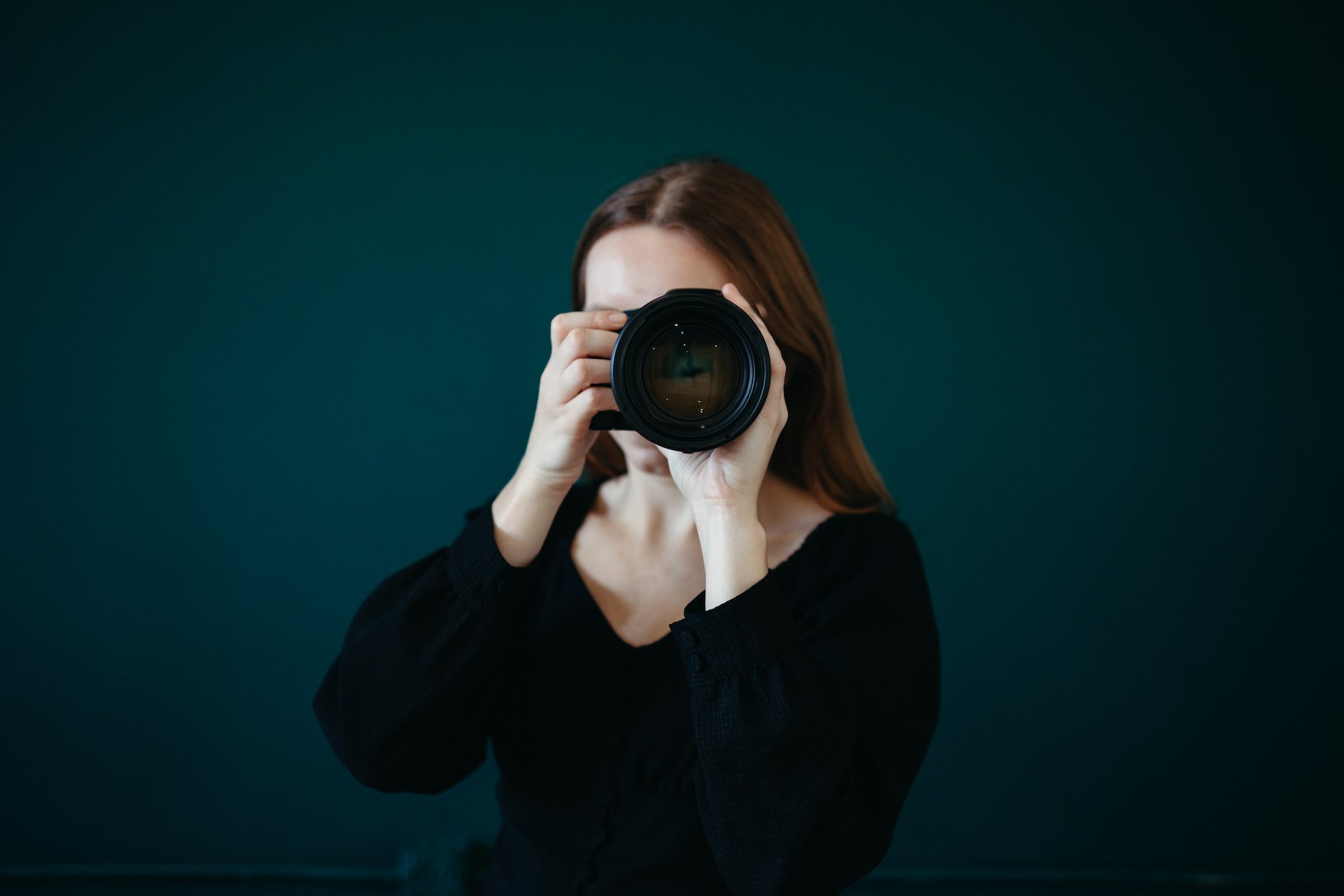Are you ready to turn your passion for photography into a thriving business? Congratulations! You're embarking on an exciting journey. But before you start booking clients, let's talk about the gear you'll need to kickstart your professional career. Don't worry – we'll break it down into manageable categories so you won't feel overwhelmed.
Professional Photography Equipment List
The Heart of Your Kit: Camera Gear
Your camera gear is the foundation of your photography business. Here's what you'll need:
- Camera Body: Start with a reliable DSLR or mirrorless camera. These offer manual controls and interchangeable lenses, giving you the flexibility to grow.
- Versatile Lenses: Begin with a standard zoom (24-70mm), a prime lens (50mm f/1.8), and a telephoto zoom (70-200mm). This trio will cover most shooting scenarios.
- Memory Cards and Reader: Always have multiple high-capacity cards and a fast card reader for efficient workflow.
- Batteries and Charger: Extra batteries are a must – you don't want to run out of juice mid-shoot!
- Camera Bag: Protect your investment with a sturdy, comfortable bag.
Pro Tip: Don't break the bank on the latest gear right away. Many successful photographers started with entry-level equipment and upgraded as their business grew.
You can also try before you buy — rent photography equipment and give it a test run before making a big purchase.
Let There Be Light: Essential Lighting Equipment
Good lighting can elevate your photos from amateur to professional. Here's what to consider:
- External Flash (Speedlight): This versatile tool is perfect for on and off-camera lighting.
- Light Stand and Modifiers: A basic stand, umbrella, or softbox will help you shape and soften your flash for more flattering results.
- Reflector Kit: An inexpensive way to control light, whether you're in the studio or outdoors.
Remember, learning to use natural light effectively is just as important as mastering artificial lighting!
Steady Does It: Tripods and Stabilization
Sharp images are crucial for professional work. Invest in:
- Sturdy Tripod: Essential for low-light situations, long exposures, and precise compositions.
- Reliable Tripod Head: A ball head or pan-tilt head will make adjusting your camera position a breeze.
The Little Things: Accessories That Make a Big Difference
Don't overlook these small but mighty tools:
- Cleaning Kit: Keep your lenses and sensors spotless for the best image quality.
- Filters: UV filters for protection, polarizers for reducing reflections, and ND filters for long exposures.
- Remote Shutter Release: Perfect for minimizing camera shake in critical situations.
Beyond the Camera: Post-Processing and Storage
Your work doesn't end when you press the shutter. You'll need:
- Computer: A reliable laptop or desktop for editing and managing your photos.
- Editing Software: Industry standards include Adobe Lightroom and Capture One.
- External Hard Drive: Always back up your work!
The Business Side: Often Overlooked, Always Essential
Don't forget about the business essentials:
- Business Cards: For networking and quick contact sharing.
- Contracts and Release Forms: Protect yourself and set clear expectations with clients.
- Accounting Software: Keep your finances in order from day one.
Specialization: Tailor Your Kit to Your Niche
As you define your photography style, consider specialized equipment:
- Wide-angle Lens: Great for landscapes and architecture.
- Macro Lens: Perfect for detail work and product photography.
- Studio Lights: Essential if you're focusing on studio portraits or product photography.
- Portable Backdrop: For creating a mobile studio setup.
Remember, you don't need to buy everything at once. Start with the essentials and build your kit as your business grows and your style evolves.
Final Thoughts
Starting a photography business is an exciting venture, but it's easy to get caught up in the gear game. Remember, the most important tools are your eye for composition, your ability to connect with clients, and your passion for creating beautiful images.
Invest wisely in quality equipment that will serve you well as you grow, but don't let a lack of top-tier gear hold you back. Many successful photographers started with basic equipment and upgraded over time.
Now, grab your camera and start shooting! Your photography business adventure awaits!




